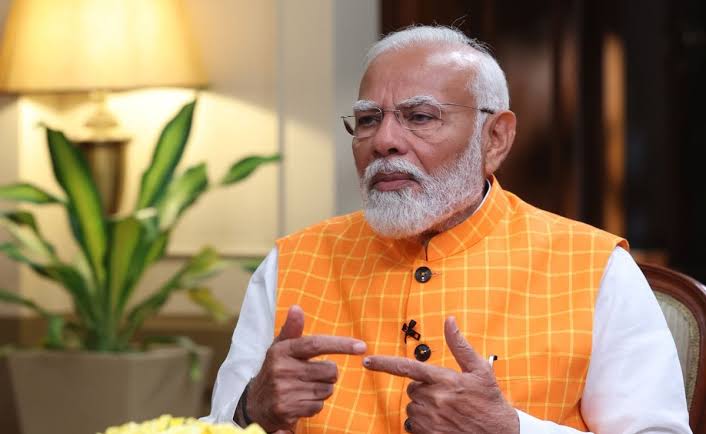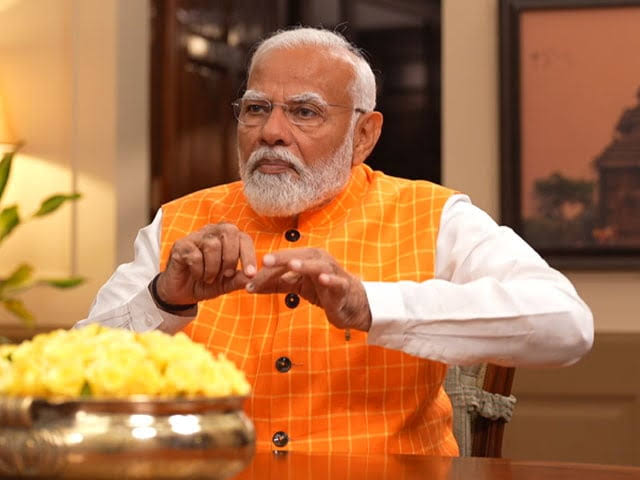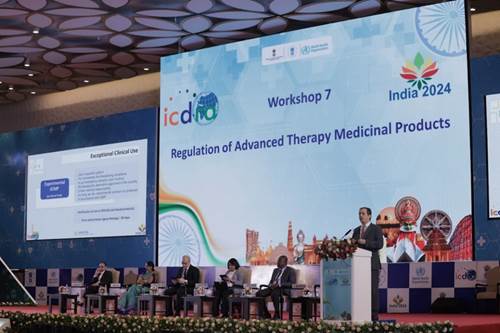New Delhi: Prime Minister Narendra Modi, in an interview with NDTV’s Editor-in-Chief Sanjay Pugalia, underscored the necessity of an industrial revolution in India, a vision previously advocated by BR Ambedkar. Modi pointed out that Dalits, Adivasis, and other disadvantaged groups, who typically do not own land, cannot rely solely on agriculture for their livelihood.
 Reflecting on his tenure as Chief Minister of Gujarat, Modi noted the importance of reducing India’s dependence on agriculture through diversification. The share of agriculture in India’s GDP has significantly declined from 35 per cent in 1990-91 to 15 per cent in 2022-23, owing to the rapid expansion of the industrial and service sectors.
Reflecting on his tenure as Chief Minister of Gujarat, Modi noted the importance of reducing India’s dependence on agriculture through diversification. The share of agriculture in India’s GDP has significantly declined from 35 per cent in 1990-91 to 15 per cent in 2022-23, owing to the rapid expansion of the industrial and service sectors.
“Babasaheb Ambedkar stressed the importance of an industrial revolution for India because Dalits and adivasis do not own land and cannot rely on agriculture. This makes their participation in the industrial revolution crucial. Reducing India’s dependence on agriculture is essential due to the immense burden on the sector,” PM Modi stated in Hindi.
He emphasized that laws alone cannot achieve this shift; diversification is key. Modi illustrated this with an example: if a family has two sons, one can pursue agriculture while the other engages in industry, thereby alleviating pressure on the agricultural sector.
Industrial development, Modi said, is vital for maintaining a robust and viable agriculture sector. He advocated for a focus on industries involved in value addition within agriculture and broader diversification.
Recounting his experience in Gujarat, Modi remarked, “Gujarat lacks mineral wealth except for salt. It was traditionally a trading state with frequent droughts, making agriculture challenging. We underwent agricultural and industrial revolutions, and these experiences are invaluable to me now.”
He highlighted initiatives like the One District One Product scheme, which promotes value addition and technological advancements.
Prime Minister Modi also discussed the potential of the automobile and electric vehicle industries in India. He mentioned that the government has opened the space sector to increased private investment, resulting in a surge of startups.
“We used to import cellphones; now we are the world’s second-largest manufacturer. iPhones are being exported globally from India. One out of every seven iPhones in the world is made here. Similarly, eight out of ten diamonds worldwide have an Indian contribution. We’re now moving towards green diamonds and lab-grown diamonds,” he said.
Modi also noted the emerging semiconductor industry in India, expressing optimism that the country could become a hub for transportation-related chips.



